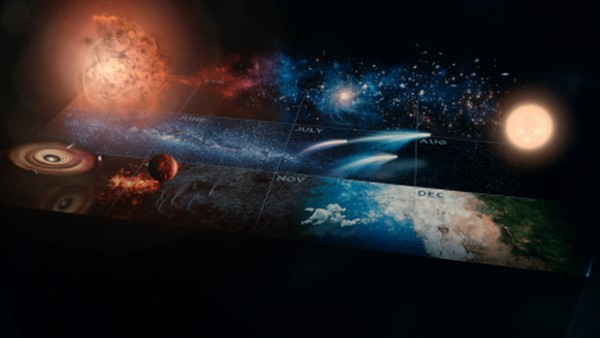See what I did there? With the title? Oh, forget it.
For me, a lot of television shows are about pure entertainment. I'll occasionally watch news, politics, or some other sort of show with educational content, but I leave most of that to the realms of documentary films and non-fiction books. It was a different story when I was a kid; I was all about educational shows. Sesame Street was the gold standard, of course, but as a child in the '80s through high school in the '90s, there was no dearth of incredible shows to immerse myself in. Mr. Wizard's World, 3-2-1 Contact, Where in the World is Carmen Sandiego?, Square One TV, Beakman's World, Bill Nye, the Science Guy, Reading Rainbow... These shows were not only grand fun, but were built on a solid foundation of helping their young viewers soak up the basics of math, geography, science, and literature.
That type of show is mostly extinct now, and the world is a worse place for it. We've entered a long stretch of years of anti-intellectualism (not coincidentally kicked off when our country was being helmed by George W. Bush), and not just in the arena of shows for children. News shows yielded to shouty pundit shows. Bravo stopped showcasing opera and started showing vapid, fighting housewives. Here Comes Honey Boo Boo airs on a network once known as The Learning Channel. The History Channel produces Ancient Aliens. So while we're in a Golden Age of scripted television, when it comes to factual content, the world has never been darker.
Until now! I was a little too young to take in Carl Sagan's original 1980 Cosmos: A Personal Voyage miniseries, but there is little doubt that the updated version, the 2014 miniseries Cosmos: A Spacetime Odyssey will appear on my top five shows of the year. It would be almost impossible to describe how fine a line this show had to walk. In more enlightened times, a scientist could go on TV, present a consensus agreed upon by 99.9% of the scientific community, and leave it at that. Now, of course, one must actually debate the merits of creationism or the lack of climate change or other such bullshit. Somehow, host Neil deGrasse Tyson managed to calmly, politely, yet assertively present the facts and hypotheses of our universe's scientific past, present, and future without ever getting polemic about it.
But even leaving the unfortunate politicization of science aside, Cosmos was just a ripping good show. It described the inner working of the universe, from the most distant stars to the tiny cells within our bodies. Its production value was breathtakingly gorgeous. It went out of its way to highlight the forgotten geniuses of our past (many of them women), who were responsible for some of the most important scientific achievements to date, but whose names never filtered into the popular consciousness.
In fact, the only bad thing about this show is that since Seth MacFarlane produced it, I am now forced to take back 75% of all the mean things I've ever said about him and his work. Excellent work, sir. Cosmos was not only an entertaining show, but a wholly necessary one. As far as I know, there are no plans for a second season, but if the healthy ratings for this all-too-brief miniseries signifies a return of the days when audiences embraced shows with actual educational content, the stars will certainly be shining a little brighter for me.
Cosmos: A Spacetime Odyssey: A+
Subscribe to:
Post Comments (Atom)




0 comments:
Post a Comment